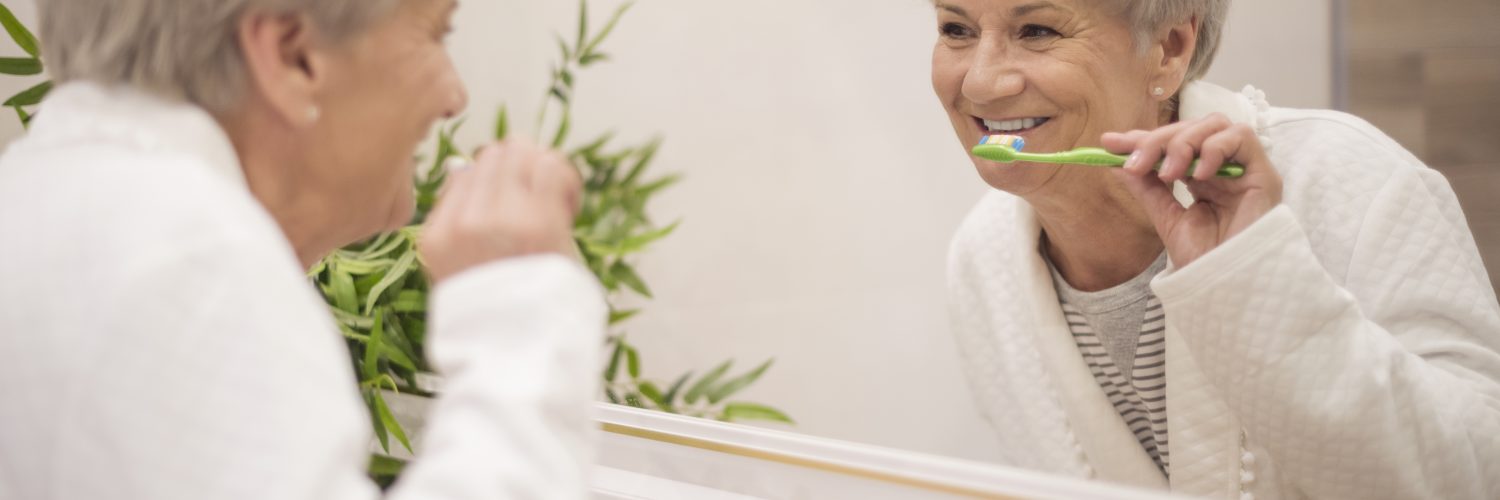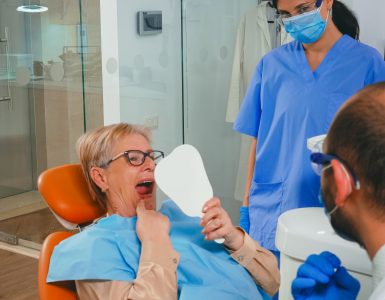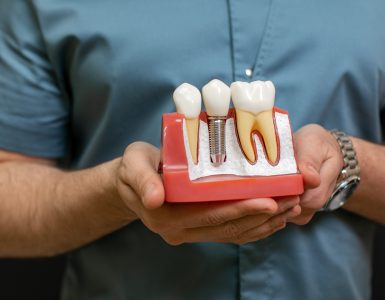As you get older the risk of having problems with your oral health increases. Oral health issues not only affect your teeth and gums, but can affect your general health as well.
Why is oral health care for the elderly important?
There is a connection between increasing age and having tooth decay. Problems with teeth, gums and dentures can significantly affect the overall wellbeing of an older person, their quality of life and their ability to age positively. Whilst it is not inevitable that you will have problems, aging teeth and gums and other medical conditions increase your chances of decay, infection and tooth loss. Poor oral health in older people may complicate chronic conditions such as diabetes, heart failure and respiratory conditions such as aspiration pneumonia. Older people are also at greater risk of oral cancers.
Poor oral health and tooth loss can affect your ability to chew and eat a variety of foods, reducing the intake of healthy nutrients, contributing to weight loss and causing bad breath, mobility issues, pain and disrupted sleep. It can also affect your appearance and your ability to talk and communicate effectively. All of these things can affect mood and behaviour and result in lower self-esteem, a lack of confidence and a reduction in willingness to socialise with others.
What oral health problems are common?
Your teeth are used every day and it is natural that as you grow older, your tooth enamel wears out they are not as strong as they used to be.
- Tooth discolouration. The enamel on your teeth will wear and thin as your get older causing the dentin inside the tooth to show and your teeth to appear darker. Added to that is a lifetime of consuming foods and drinks that cause staining on your teeth.
- Dry mouth. Aging can affect and reduce the production of saliva in the mouth. Medications for some conditions can also cause a dry mouth as a side effect. Saliva has the function of washing away food debris and bacteria remaining in the mouth helping to prevent tooth decay and gum disease. Many elderly people can experience problems in maintaining good levels of saliva.
- The bacteria in plaque on your teeth turns the sugars in food and drink into acid that can wear down the enamel in your teeth causing decay. With thinner enamel, older teeth are more susceptible to the effects of plaque and decay.
- Receding gums. As you age your gums tend to recede from the tooth exposing the roots. Lacking enamel like your teeth, the roots are exposed to acids that can lead to decay.
- Gum disease. Gum disease is caused by certain bacteria in plaque that accumulate on the gum line of teeth. These bacteria produce toxins that seep down between the gum and the tooth, irritating the gum tissues and causing them to become reddened, inflamed and bleed. A severe gum infection damages the tissues that hold your teeth in place and can lead to deterioration in the jawbone underneath the gums. This lack of support can lead to tooth loss and is the main cause of tooth loss among adults. It is more prevalent and severe in older adults with smoking, a poor diet, ill fitting dentures and diseases such as diabetes and cancer contributing.
- Bone loss and shifting teeth. The tooth roots support the jaw and provide stimulation to the jawbone. When a tooth root is missing the bone in the jaw starts to deteriorate in height and width due to the lack of stimulation. Your teeth support each other, so when a tooth is missing the remaining teeth may move to fill the gap causing crooked or misaligned teeth creating small areas in your mouth that are hard to brush and floss. This could cause problems due to a build-up of plaque and tartar and increases your risk of gum disease.
Caring for elderly teeth
You can see that developing and maintaining a good oral hygiene routine is extremely important as you get older with twice daily brushing with a fluoride toothpaste, daily flossing and regular check-ups with your dentist for an oral exam and professional clean. Using a mouthwash will also help.
With a change of lifestyle, habits, physical and health issues, maintaining their oral hygiene routine can become more difficult for some elderly people. As you age, you come into contact with a range of health care professionals who are responsible for monitoring and assessing your needs and assisting with personal care. They will be able to plan and assist you with your daily oral care needs.
Various toothbrush and flossing alternatives are available that provide assistance to those with physical limitations that make it difficult to brush with standard methods.
Your dentist or health care provider will be able to provide you with any assistance you need and answer any questions you may have.




